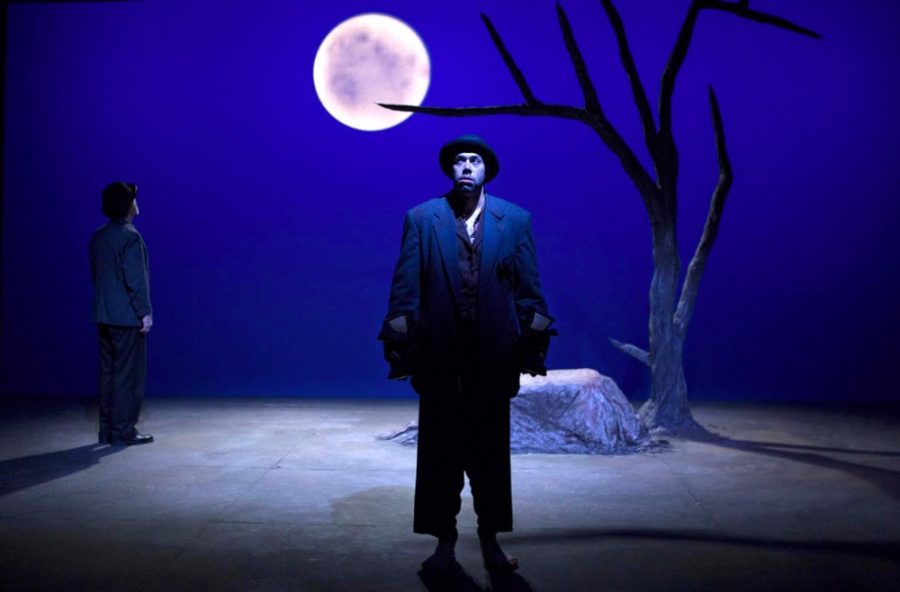As students come back to campus fresh from winter break, the red doors of The Rogue Theatre welcome all to its spring opener with Samuel Beckett’s “Waiting for Godot.” Through the play, one can experience the absurd existential crisis of waiting for a man who may or may not exist and has yet to show up to his appointment. Additionally, as play director Cynthia Meier said, one may also experience how “Nothing happens.”
That is the basis of the plot that the theater company explores in how it plays out the absurd through characters’ humorous ticks and behaviors. For example, the character Pozzo, played by David Morden, lays on the ground crying for help, seemingly unable to get up by himself despite being able to. At first glance, this may seem like a petulant act, but one cannot help but snicker at this self-important man being ignored, especially when his softly spoken “pity” makes the house roar with laughter at his predicament.
The restlessness of the character Vladimir also adds to the humor as he constantly wakes his companion, Estragon, from his short nap. This prompts the refrain, “Why will you never let me sleep?”
The humor is helped by the piano accompaniment. Its musical cues following the characters’ footsteps in a fashion reminiscent of old Warner Bros. cartoons. The music aids the play’s tone and transforms what could easily be serious and depressing into something satirical and darkly humorous.
Many things about the play are humorous, absurd and wonderfully existential, but it is the cast that makes the play. Admittedly, there are problems when looking at the two main characters whose journey the play follows. Vladimir, played by Joseph McGrath, and Estragon, played by Matt Bowdren, have been companions for about 50 years, and there is some expectation that the characters should look older. It is, in part, made up for when Bowdren acts more tired than his years at the prospect of their fruitless waiting.
In the Broadway run of the play in 2013, with Vladimir and Estragon played by Patrick Stewart and Ian McKellen, respectively, this duo reveals a story of companionship and a way to help pass the time together, as Vladimir remarks in the play. However, with The Rogue Theatre’s production and ensemble, “Waiting for Godot” may instead show the satirical side of Beckett’s play. This leads the way to brooding and doubting one’s reality but also creates an “Inception”-like moment at the end, with Vladimir reflecting, “Is this a dream?”
The play still prompts the question: Why wait for Godot? Perhaps it is, in part, because of the circumstances — that there is nothing else to do, and it is a play in which nothing really happens. But perhaps it is the way one passes the time, and, with a friend, the wait can become worthwhile.
“Waiting for Godot” runs Thursdays through Sundays until Jan. 25 at The Rogue Theatre.
_______________
Follow Ivana Goldtooth on Twitter.









